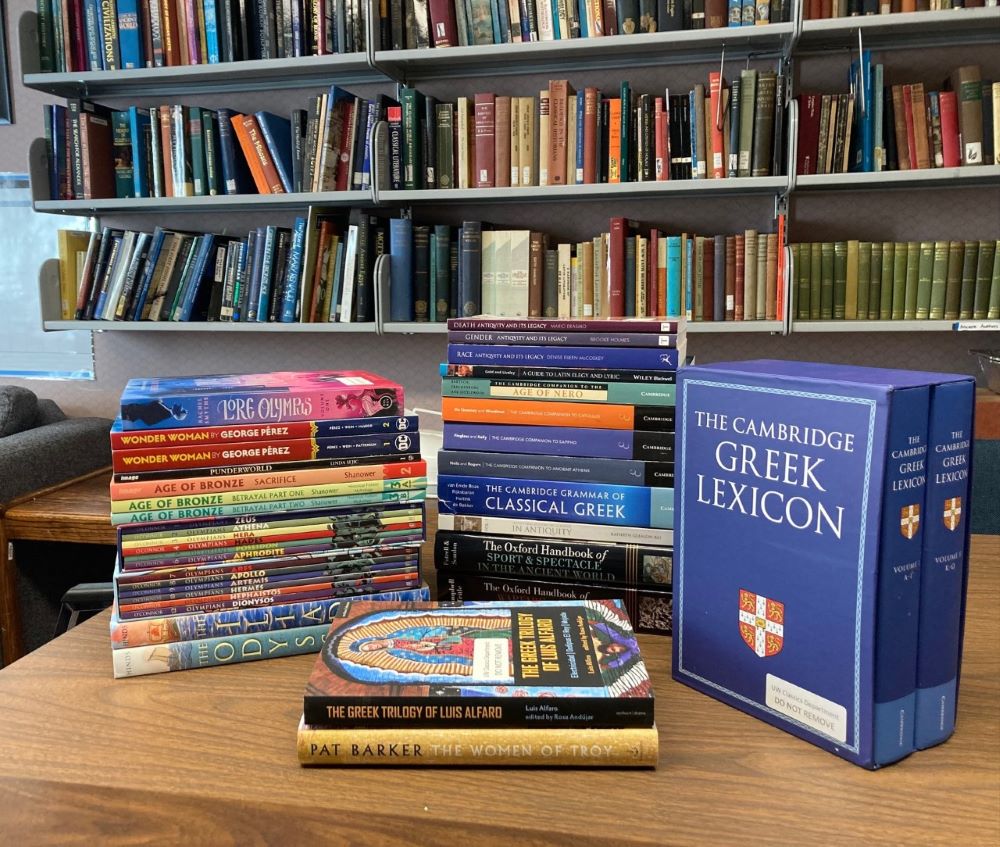Resources for Students
Lace: Greek OCR
Lace is a project that currently produces accessible and free ancient Greek texts. Students with very little knowledge of ancient Greek (even as early as the second week of first-year Greek) can take part in this research project. It offers great opportunities to improve one's language skills: students learn to identify and recognise Greek letters and to enter it into a website. It provides excellent training in working not only with ancient Greek as a language, but also with raw data.
The main site is down as of February 23, 2023 but you can access it via archive.org or GitHub.
The Homer Multitext project seeks to present the Homeric Iliad and Odyssey in a critical framework that accounts for the fact that these poems were composed orally over the course of hundreds, if not thousands of years by countless singers who composed in performance. The evolution and the resulting multiformity of the textual tradition, reflected in the many surviving texts of Homer, must be understood in its many different historical contexts. Using technology that takes advantage of the best available practices and open source standards that have been developed for digital publications in a variety of fields, the Homer Multitext offers free access to a library of texts and images and tools to allow readers to discover and engage with the Homeric tradition. A recent report says only 5% of Byzantine science manuscripts have been published, and this project offers students the opportunity to unlock these treasures for all time!
Bibliography and Citation Guidelines [PDF]
This printable document provides instructions when and how to reference both modern and ancient sources in academic writing.
This site provides information on how to find research materials in the University of Winnipeg's library for research essays in Classics courses. It includes links to useful websites as well as call numbers for standard reference works.
The Loeb Classical Library contains all the major works of ancient Greek and Latin literature, featuring the original Greek or Latin with recent, authoritative English translations on facing pages. Go and see which authors and works are there - everything from Homer's Iliad to Plautus' Miles Gloriosus to Dio Chrysostom's Encomium on Hair.
This site provides many of the works of both Greek and Roman authors in the original languages and in translation. It also provides a link to the Duke databank of documentary papyri.
This site provides translations of major Greek and Latin works of importance to the study of Roman history. Original Latin is provided for some authors.
This is a comprehensive bibliographic resource for publications in Classics since the early twentieth century.
NOTE: You must be a registered student, staff, or faculty member of the University of Winnipeg to be able to gain access through the UWinnipeg library.
Bibliography specifically related to the study of women and gender in antiquity is available through this site.
There are many professional associations devoted to furthering our knowledge of antiquity and disseminating research. Many mount annual conferences (the hosting city varies from year to year), put on dedicated panels at conferences, or host lecture series throughout the academic year. Many of the associations also offer scholarships or awards to outstanding students, or provide other opportunities for students to advance their studies (the Classical Association of Canada, for example, runs annual, nation-wide translation competitions in ancient Latin and Greek for undergraduate students, in addition to an annual essay writing competition). Links to the major North American (and local Western Canadian) associations are provided below. All offer membership to students at reduced annual rates; members receive the associations’ publications, in the form of journals or newsletters.
Please feel free to visit the department office (4G09) for any questions about your Classics degree.
The following resources may also be helpful:
Academic Calendar Information [PDF]
Fact Sheet [PDF]
2024-25 Course Offerings [Web page]
Check back for postings!
Corvus Journal of Classics and Ancient History
Carleton University Classics Society
https://carleton.ca/grs/student-life/corvus-journal/
Animus Classics Journal
University of Chicago
https://animusclassics.carrd.co/
Crossings
University of Winnipeg
http://crossings.uwinnipeg.ca/index.php/crossings
The Haley Classical Journal
Hamilton College
https://issuu.com/haleyclassicaljournal
Check back for information about Classics graduate programs!
The Classics Library in 4G07 is home to up-to-date research resources, textbooks, and popular contemporary works related to Classical Antiquity. Students are welcome to use any of these resources while in the common room.

